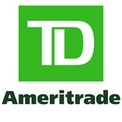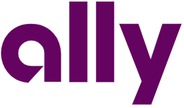Best Online Brokers
Online brokers make it possible for almost anyone to invest. Our research team vetted 17 online brokers that are rated by more than 3,600 customers. Read our guide to choose the best online broker for you by comparing trader commissions, account minimums and platform features.
- Our recommendations are based on what reviewers say.
- 4,338,283 reviews on ConsumerAffairs are verified.
- We require contact information to ensure our reviewers are real.
- We use intelligent software that helps us maintain the integrity of reviews.
- Our moderators read all reviews to verify quality and helpfulness.
Compare Online Broker Reviews | ||||||
|---|---|---|---|---|---|---|
Offers free desktop, web and mobile platforms for various levels of investors. No commissions on online stock, ETF and option trades. Traditional management services include goal planning and your choice of portfolios. |  | Chat with a ConsumerAffairs decision guide Live agent | ||||
Invest in stocks and funds. Trade options, gold and crypto. No commission fees and no minimum account balances. Invest any amount with fractional shares. Execute trades in real time. Get your first stock free when you sign up. | Chat with a ConsumerAffairs decision guide Live agent | |||||
Brokerage, retirement, core and managed portfolio and small business accounts available. Select from stocks, options, mutual funds, ETFs, futures, bonds, CDs and prebuilt portfolios. Transparent pricing and rates. | Chat with a ConsumerAffairs decision guide Live agent | |||||
Offers online banking, robo-advisor trading, portfolio management and various loans. Stocks, ETFs, bonds, mutual funds, margin accounts and securities lending available. No commission or advisory fees. |  | Chat with a ConsumerAffairs decision guide Live agent | ||||
Offers complex wealth management, retirement planning, investment management and other financial services. Choose personalized planning from an advisor, robo-advising or a hybrid. No account fees or minimums to open an account. |  | Chat with a ConsumerAffairs decision guide Live agent | ||||
Offers online, self-directed investments. Free, unlimited stock, ETF and option trades. $0 minimum investment for self-directed options. No annual account fees. Provides research-backed insights. |  | Chat with a ConsumerAffairs decision guide Live agent | ||||
Investment management company with more than 30 million investors. Access financial advice, investments, retirement tools and market insights. Choose a personal financial advisor, all-digital advice or DIY investing. |  | Chat with a ConsumerAffairs decision guide Live agent | ||||
Provides a wide array of financial services. Products include insurance, annuities, investments, banking and cash management. IRAs, mutual funds, stocks, ETPs, bonds, alternative investments and UITs available. |  | Chat with a ConsumerAffairs decision guide Live agent | ||||
Lets you invest in stocks, options, futures, currencies, bonds and funds from one integrated account. Get extra income on fully-paid shares in your account. Select from IBKR Lite and IBKR Pro plans. Commissions start at $0. | Chat with a ConsumerAffairs decision guide Live agent | |||||
Offers broker services, retirement planning, financial advising and specialized solutions. $0 commissions on online trades. No trade or account minimums. Upfront pricing listed online. Fractional shares cost as little as $5. |  | Chat with a ConsumerAffairs decision guide Live agent | ||||
Our picks for top online brokers
With so many online options for investors to choose from, it can be hard to know where to start. We selected our top picks based on customer reviews and ratings, but many factors play a role in determining the best available online brokers.
Take a look at our picks and why we think they're the best:
- Account minimum: Price of one share
- Commission: $0 on stocks and ETFs
Vanguard offers plenty of investment options, including stocks, proprietary mutual funds and ETFs, plus robo-advisor services. Vanguard has $0 commissions on stocks and ETFs and a low $20 annual fee on brokerage accounts. It also allows for international market access.
Some of Vanguard’s faults mirror its main advantages, though. For instance, it’s worth noting that there are commissions on options, and Vanguard mutual funds have a $3,000 account minimum. Its trader platform is also not the strongest available. Finally, it can be hard to invest in fractional shares through Vanguard. That being said, Vanguard is still a strong option if you’re looking for an online brokerage.
“I've been a client of Vanguard for about 10 or 12 years. I'm very satisfied with the excellent quality of service they provide, I get my e-statements every month explaining everything down to the penny, their customer service department are very knowledgeable on every aspect of the service,” a reviewer in Louisiana told us.
Pros
- No commission on stocks and ETFs
- Low minimums for securities and ETFs
- Good range of investment options
Cons
- $3,000 minimum investment for most Vanguard mutual funds
- Higher commissions for options
- Account minimum: $25,000 per household for self-directed
- Commission: $6 fee per trade
Ameriprise Financial is another good option, especially for people that want advisory services. It helps clients invest in options, stocks, ETFs, mutual funds, bonds, IRAs, individual fixed income securities, structured products and college savings plans.
Brokerage fees vary based on the type of account, but expect to pay at least $100 per year plus a $6 Brokerage Retail Order Handling Fee per trade. Ameriprise also has a $25,000 per household investment minimum ($2,000 per account) for self-directed investors, and this minimum goes up with more extensive management.
Still, Ameriprise ranks highly among online brokers. “Very customer friendly. Take the time to sit down with an uninformed consumer to explain the pitfalls of investing,” according to a reviewer in California.
Pros
- Full-service broker
- Range of investment options
- Competitive investment strategy support
Cons
- Trading fees
- Investment minimums
- Account minimum: None
- Commission: $0 for ETFs, stocks, options or crypto
Robinhood‘s fee structure is easy to manage, even for beginners, and it doesn’t require an account minimum. Robinhood also has commission-free trading on securities. Its investment options include stocks (including fractional shares), ETFs, options and cryptocurrencies. Its premium service, Robinhood Gold, gives you access to new and improved features, like investing on margin, for as low as $5 per month.
Positive Robinhood reviews highlight the interface for options, crypto and stocks trading. Robinhood isn’t the oldest company offering brokerage services, but it was one of the first to offer such a comprehensive online platform and mobile app.
Pros
- No account minimums
- Commission-free trading
- Fractional share trading
Cons
- Limited diversity in mutual funds
- Difficult to contact customer service
- Account minimum: None
- Commission: $0 for stocks, ETFs and options
E*TRADE offers commission-free trading for options, ETFs and stocks. While there are other fees associated with certain investments, E*TRADE has tiered pricing that can benefit investors who make more than 30 trades per quarter.
There are some drawbacks to E*TRADE, though. It won’t help you invest in cryptocurrencies, and while it allows for trading on margin, its rates start at 8.95% for debit balances under $10,000. Rates go down for higher balances, but they still bottom out at 5.45%.
“e*Trade is a great way to invest all of your assets. They were willing to give me more options to where I could protect my finances and to store for my retirement as I continue to work, and how much to stock away when that time comes,” a reviewer in Missouri said.
Pros
- No commissions on ETFs, stocks and options
- No account minimums
- Managed portfolios available
Cons
- Margin rates start at 8.95%
- No crypto investing
- Account minimum: None
- Commission: $0 on stocks, ETFs and options
TD Ameritrade is a comprehensive online broker offering a wide range of products. It has several types of accounts available, including traditional IRAs, Roth IRAs, education accounts and brokerage accounts.
Overall, it provides an easy-to-use platform and a good amount of educational material to help new investors get started. It also provides various research investment tools, including Market Edge and ETF Market Center. The downside is that it shares some flaws with E*TRADE, like high margin rates and no cryptocurrency trading capabilities.
“Some personal service is available, but mostly the customer has to find his own answer and the TD Ameritrade … If you can navigate a website you will be able to find out all the information that you may need,” a reviewer in South Carolina said.
Pros
- No account minimums
- Good educational tools
- Access to third-party research
Cons
- No crypto investing
- Margin rates start at 9.5%
- Account minimum: None
- Commission: $0 on ETFs and stocks
What is an online broker?
An online broker lets you invest in stocks, bonds, ETFs, options and other investments remotely. In the past, you had to work with a stockbroker to buy and sell securities, but online brokers now allow you to make self-directed trades from your computer or smartphone.
Types of online brokers
Many online brokers serve people who want to trade stock from home or on the go without consulting a financial advisor. However, many other online brokers are legacy brokerages and advising firms that have adapted to offer online investment platforms. Both options are viable, but it’s up to you to decide which is right for you and your investment goals.
- Platform-only brokers: Also called discount brokers, these brokers exclusively provide self-directed platforms for online trading. They often keep their costs down by offering a bare-bones service without many bells or whistles.
- Full-service brokers: Traditional brokers and financial firms usually offer more comprehensive services, including traditional investment options, retirement accounts and managed portfolios. There is usually a fee for working with an investment advisor. If you plan to work with an advisor, make sure they are licensed and a fiduciary, meaning they are legally bound to work in your best interest.
How to choose an online broker
When choosing an online stock broker, consider its:
- Trader platform
- Costs and fees
- Investment aids
- Educational materials
- Customer support
Trading platforms
Check out the look, feel and capabilities of a broker’s website and mobile app. Take note of its:
- Ease of use: Make sure the platform is easy to use and that you can find any trading tools and features that are important to you. Many brokers offer a demo version of their trading platform so you can try it out before signing up.
- Speed: There likely won’t be much difference between the speed at which sites can make trades, but any differences that do exist can have significant financial repercussions if prices change quickly. Look for a site that advertises its platform speed.
- Execution: Brokers are legally obligated to provide clients with the best possible order execution, but that doesn’t mean they all get the same results. However, order execution is less important if you will be placing limit orders, meaning you request to buy or sell a certain number of particular securities when the price reaches your specified point.
Costs and fees
When you trade securities online, it’s standard to pay trading fees or commissions in addition to the price of the investment. These rates vary by broker and account type. However, other fees may apply. Read the website’s fine print carefully so you’re not surprised by hidden fees.
- Minimum initial deposit: If you do not want to invest a significant amount of money, choose a broker that does not require a minimum initial deposit. Some companies will let you open an account and begin making trades with only enough in your account to cover the commission and the stock price, while other sites require you to deposit thousands of dollars before you can begin trading.
- Commissions: Commissions and trading fees are the most common costs associated with trading stocks and other securities online. Brokers usually charge these fees per trade; the more often you trade, the more money you’ll spend.
- Brokerage fees: Brokerage fees are what brokers charge to hold your account or provide certain services, like premium research. Different brokers may charge these on different schedules, and they may go by different names.
- Advisory fees: If you opt for guidance from an investment advisor or robo-advisor, expect to pay additional fees, expressed as a percentage of your assets under management (AUM).
- Inactivity fees: Some brokers charge inactivity fees if you do not trade often enough. They may require you to make a minimum number of commission-based trades every month, quarter or year. If you don’t make the minimum number, you’re charged a fee.
Investment aids
If you plan to make trades without the assistance of an investment advisor or with only minimal financial guidance from one, make sure you have access to reliable intel. Some sites provide this information for free, while others charge you to access it. Of course, you can always choose to have your investments managed for you, too.
- Research tools: Many sites offer live updates to track stock prices. Having this tool built into your trading platform might help you make decisions faster, which could have financial benefits when prices are changing quickly. If you are investing for the long term and aren’t planning to make trades every day based on split-second decisions, you can probably use a variety of other websites to find similar information for free, though.
- News: Broker websites often feature a section where you can see market news. It may be convenient to see news stories on your trading site, but the same information is available for many other sources. If you don’t plan to visit your trading site daily, this isn’t a feature worth paying extra for.
- Management options: If you want the option to get professional advice, look for a company that offers other financial services. These might include occasional conversations with an advisor, specific market research, portfolio reviews or full-time management from an investment advisor.
Educational materials
If you’re a new investor, it helps to have a broker with resources that help you learn about investing. Some of these materials may be available for free on the broker’s website, so check them out before you sign up to make sure they’re actually helpful.
- Explanatory articles: Brokers often provide this content to help beginning investors find out what certain terms mean and how to navigate their trading platforms. More advanced information may also be available, though.
- Instructional videos: Sites with more educational resources may include videos that explain things in a more visually engaging way. If you learn better with someone explaining things to you, look for a site with video resources.
- Live webinars: Some brokers host live webinars. These sites might be helpful if you want to learn more and get insights from experts. Webinars are typically free for account holders.
Customer support
If you have any problems with your account, you’ll need to contact customer service. Choose a company that offers convenient options for getting in touch with its representatives.
- Hours: Make sure the company’s website clearly lists its hours of operation. If you plan to make trades after business hours, look for a platform with extended hours.
- Contact options: Most companies offer customer service by phone, email and online chats. If you prefer one of these options over the other, try contacting the company with a question using that method before you sign up for an account.
- Fraudulent activity alerts: Some companies offer protection for consumers whose accounts are accessed by unauthorized parties. These brokers may replace the funds or securities stolen as long as you’ve followed all their best practices for security and privacy.
Frequently asked questions
How much do online brokerage firms charge?
It depends on your brokerage, the investments you’re making, and the level of service you want. As you’re comparing brokerages, see if they want to work with the investments you’re interested in. Possible charges include:
- Commissions or trading fees
- Brokerage fees
- Advisory fees
- Inactivity fees
What do you need to open an online brokerage account?
Expect to provide:
- Basic personal and contact information
- Proof of identification
- A bank account for transferring funds
- If you’re working with an investment advisor, they may also ask you questions about your investment goals and risk tolerance.
Can you invest in the stock market without a Social Security number?
Yes, but not all brokerages allow noncitizens to open accounts. Expect to provide other forms of ID, like your Taxpayer Identification Number (TIN), if you don’t have a Social Security number.
Can I buy stocks online by myself?
Technically, no, but there’s generally no human contact required if you buy stock through a platform-only broker.
Bottom line: How to find the best online broker
A variety of factors can determine which online stock broker is best for you, including which investment products and services you’re looking for. We selected our top picks based on verified customer reviews and ratings on our site:
- Vanguard
- Ameriprise Financial
- Robinhood
- E*TRADE
- TD Ameritrade
- Charles Schwab & Co.
Top picks methodology
We started with a list of 17 popular online stock brokers. To narrow it down, we first considered the verified reviews and ratings on our site. Only companies with a minimum overall satisfaction rating of 3.5 were eligible to be one of our top picks. We also eliminated brokers with more 1-star reviews than 5-star reviews published on our site over the last year (between May 25, 2020, and May 25, 2021).
Thanks for subscribing.
You have successfully subscribed to our newsletter! Enjoy reading our tips and recommendations.
Author reviews for online brokers

Fidelity Investments is a privately-held full-service financial firm that offers an extensive range of investment options, including online trading, retirement accounts, IRAs, mutual funds, life insurance and more. The company has been in business since 1946 and now serves more than 25 million individual investors. It is headquartered in Boston with locations across the United States.

Interactive Brokers has roots going back to 1977. It now has over 1,000 employees working in offices around the world. It allows individuals and professional brokers to access and trade stocks and other securities electronically.

Charles Schwab offers a wide range of financial services and products, including online trading for all levels of investors. The publicly-traded company was founded in 1973 and is headquartered in San Francisco. The full-service firm has offices across the country to provide investors with support for whatever type of brokerage service they have.

E*TRADE is an online brokerage firm that offers consumers several financial tools for investing. Their online trading platform offers both a simple, easy-to-use interface as well as a more detailed and complex system for more advanced investors. E*TRADE was founded in 1982 and made its first electronic trade the following year.

TD Ameritrade, founded in 1975 as First Securities Omaha, is a full-service brokerage firm. It is still headquartered in Omaha. It offers many types of investment and financial products for all levels of investors. Clients can work with agents in local branches or only trade stocks online.

Ameriprise is an investment firm with an extensive range of online services. It was founded in 1894 in Minneapolis, where it is still headquartered. Those with an Ameriprise brokerage account can make online trades of stocks and ETFs in their online account.

Robinhood was established in 2012 when the founders set out to remove the unnecessary costs associated with online trading. The app-based trading platform is free and lets consumers make trades without paying a commission. The fast-growing startup aims to disrupt the online brokerage industry.
Compare Online Broker Reviews | ||||||
|---|---|---|---|---|---|---|
Offers online trading and brokerage services. Investment options include stocks, ETFs, options, futures and cryptocurrencies. Designed for beginners and pros. Costs vary by plan. | Chat with a ConsumerAffairs decision guide Live agent | |||||
Equity-focused advisor marketplace. In-depth screening process for firms. Personalized firm recommendations. 1:1 virtual tax planning sessions available. No fee to use the marketplace. Tools for asset and debt tracking. |  | Chat with a ConsumerAffairs decision guide Live agent | ||||
Automate contributions and stay on track with dynamic rebalancing. Choose your investment amount, time horizon and risk tolerance. Build a custom portfolio or choose from over 80 expert portfolios. No management fees. |  | Chat with a ConsumerAffairs decision guide Live agent | ||||
Trade popular cryptocurrencies on your own or with fully managed portfolios. Supports 17 different coins. Buy with a bank account or debit card. Pricing done entirely through spreads. Automated CopyTrader feature available. |  | Chat with a ConsumerAffairs decision guide Live agent | ||||
Offers a trading platform with no commissions or account minimums. Trade stocks, options, ETFs and cryptos during normal and extended trading hours. Get free access to its customizable desktop platform. | Chat with a ConsumerAffairs decision guide Live agent | |||||
Real estate investing and portfolio building with accredited investors and low fees. Experienced advisors. Property types include hospitality, multifamily, industrial and office. Cash flow generation and capital preservation. |  | Chat with a ConsumerAffairs decision guide Live agent | ||||
Online real estate investing platform. Only available for accredited investors. Large marketplace. Supports multiple ways to invest. Nationwide investment opportunities. Most offerings have a $25,000 investment minimum. | Chat with a ConsumerAffairs decision guide Live agent | |||||
Offers robo-advisor trading with no commissions on online trades. Trade stocks, ETFs, fixed income products and mutual funds. Account types include IRAs and traditional brokerage, international and education accounts. |  | Chat with a ConsumerAffairs decision guide Live agent | ||||
Provides a free matching tool to help you find financial advisors for specific needs and goals. Advisors are certified fiduciaries. Access online mortgage, tax, banking, investing and retirement calculators. | Get Started | |||||
Brokerage platform. Created for active option traders. Also includes stock trading. Offers stocks, futures and options markets only. Low fees. Not ideal for casual investors. Several individual and joint account options available. | Chat with a ConsumerAffairs decision guide Live agent | |||||
Information in this guide is general in nature and is intended for informational purposes only; it is not legal, health, investment or tax advice. ConsumerAffairs.com makes no representation as to the accuracy of the information provided and assumes no liability for any damages or loss arising from its use.
Want your company to be on this guide?
Yes, continueYou’re signed up
We’ll start sending you the news you need delivered straight to you. We value your privacy. Unsubscribe easily.